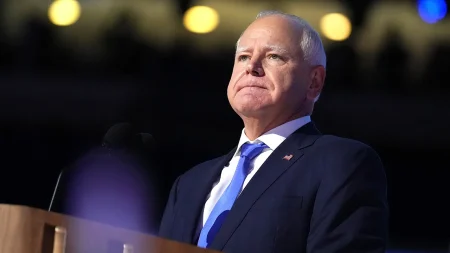Biden Issues Stark Warning to Hamas: Accept Ceasefire or Face Israeli Assault on Gaza City
In a dramatic escalation of diplomatic pressure, President Biden delivered what many international observers are characterizing as an ultimatum to Hamas: accept the latest ceasefire proposal or confront the full military might of Israel in Gaza City. The President’s statement comes at a critical juncture in the months-long conflict that has devastated the Gaza Strip and claimed thousands of lives on both sides. This development signals a potentially decisive moment in the ongoing crisis that has captured global attention and sparked humanitarian concerns across the international community.
Diplomatic Pressure Mounts as Conflict Reaches Critical Phase
President Biden’s forceful message to Hamas leadership represents the culmination of weeks of behind-the-scenes diplomatic efforts by American officials working alongside regional partners. Speaking from the White House Rose Garden, Biden emphasized that the current proposal, brokered with assistance from Egypt and Qatar, offers “the most viable path toward de-escalation and the protection of civilian lives.” The President’s unusually direct language underscores the administration’s growing frustration with the protracted conflict and reflects mounting pressure from both domestic and international stakeholders for a resolution.
“The time for equivocation has passed,” Biden stated, his tone noticeably more stern than in previous addresses on the subject. “Hamas leaders face a clear choice: embrace this opportunity for peace or bear responsibility for the consequences that will follow.” Administration officials, speaking on condition of anonymity to discuss sensitive diplomatic matters, indicated that intensive consultations with Israeli leadership preceded the President’s statement, suggesting a coordinated approach designed to present Hamas with limited options. The proposal reportedly includes provisions for humanitarian aid corridors, limited prisoner exchanges, and a phased withdrawal of Israeli forces from specific areas of Gaza—terms that analysts describe as potentially acceptable to both sides despite significant compromises required.
Historical Context and Current Conditions Shape High-Stakes Negotiation
The conflict, which intensified dramatically following Hamas’ October attack on Israel, has evolved through several phases of varying intensity. Previous ceasefire attempts have produced only temporary pauses in hostilities, with each side accusing the other of violations and bad faith negotiations. This latest diplomatic push comes as conditions in Gaza have reached what United Nations officials describe as “catastrophic levels,” with critical shortages of food, medicine, clean water, and shelter affecting the vast majority of the territory’s 2.3 million residents.
Dr. Sarah Kaufman, Senior Fellow at the Center for Strategic and International Studies, contextualizes Biden’s approach: “The administration appears to be leveraging the imminent threat of a major Israeli operation in Gaza City to force Hamas into a more compromising position. It’s a high-risk strategy that acknowledges the diminishing returns of traditional diplomatic outreach.” Historical precedents for such ultimatum diplomacy in the region have yielded mixed results, with success often dependent on behind-the-scenes guarantees and the credibility of the threat being presented. The Israeli military has been positioning forces around Gaza City for several weeks, lending weight to Biden’s warning about the potential for imminent military action should negotiations fail.
Regional Implications and International Response
The President’s ultimatum has reverberated throughout the Middle East, drawing varied reactions from key regional players. Egypt’s foreign ministry issued a statement urging Hamas to “carefully consider the proposal in light of the humanitarian situation,” while Qatar’s diplomatic representatives have intensified their mediation efforts. Jordan’s King Abdullah II, speaking to reporters during a state visit to Germany, expressed cautious optimism about the proposal while reiterating concerns about regional stability.
International humanitarian organizations have responded with urgent appeals for all parties to prioritize civilian protection regardless of diplomatic outcomes. Médecins Sans Frontières international president Dr. Christos Christou emphasized in a statement that “diplomatic ultimatums cannot be allowed to further endanger civilian lives already hanging in the balance.” The European Union’s High Representative for Foreign Affairs, Josep Borrell, described the situation as “a moment of truth for all parties” and called for “responsible engagement with the proposal on the table.” Within the United States, the administration’s approach has generated both support and criticism, with some congressional voices praising the more assertive stance while others express concern about the potential humanitarian consequences of an Israeli assault on densely populated Gaza City.
Analysis of Military and Humanitarian Considerations
Military analysts suggest that an Israeli operation in Gaza City would represent a significant escalation even beyond the intense fighting that has already occurred in the territory. Colonel (Ret.) David Richards, former military advisor to UN peacekeeping operations, explains: “Urban warfare in an environment like Gaza City presents extraordinary challenges for conventional military forces, regardless of technological advantages. The density of civilian infrastructure and population makes distinction between combatants and non-combatants exceptionally difficult, raising serious concerns about compliance with international humanitarian law.”
Humanitarian experts emphasize that Gaza’s healthcare system has already collapsed under the weight of the conflict, with most hospitals non-operational or severely limited in capacity. Dr. Helena Rancourt of the International Committee for Refugee Health warns that “a major assault on Gaza City would create an unprecedented humanitarian emergency in an already catastrophic situation. The medical infrastructure simply cannot absorb additional mass casualties.” These humanitarian considerations likely factor into the administration’s calculation that Hamas might be persuaded to accept terms it previously rejected, rather than bear responsibility for triggering further devastation in Gaza City.
Prospects for Resolution and Path Forward
As the deadline implied in President Biden’s statement approaches, diplomatic channels remain active despite the public ultimatum. Secretary of State Antony Blinken has engaged in marathon phone diplomacy with counterparts across the region, while special envoys maintain direct communication channels with both Israeli officials and intermediaries who can reach Hamas leadership. Analysts remain divided on the likelihood of Hamas accepting the proposal, with assessments ranging from cautious optimism to deep skepticism.
The coming days will prove decisive not only for the immediate future of Gaza and its inhabitants but potentially for the broader trajectory of Middle East peace efforts. President Biden’s gambit represents a significant diplomatic investment with corresponding political risks. If successful, it could establish a foundation for more comprehensive negotiations and potentially strengthen America’s position as an effective mediator. If unsuccessful, the administration may face difficult questions about its approach as Israel proceeds with military operations that will inevitably produce additional civilian casualties and humanitarian suffering. For the people of Gaza City, caught between Hamas’ decision-making calculus and Israeli military preparations, the stakes could not be higher as they await the outcome of this high-stakes diplomatic maneuver that has brought the conflict to yet another critical crossroads.










